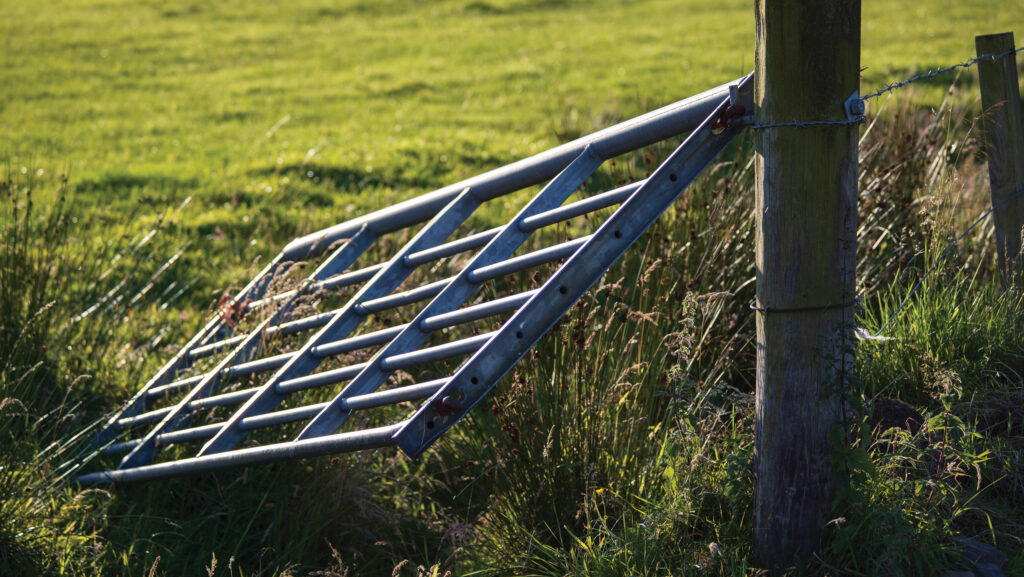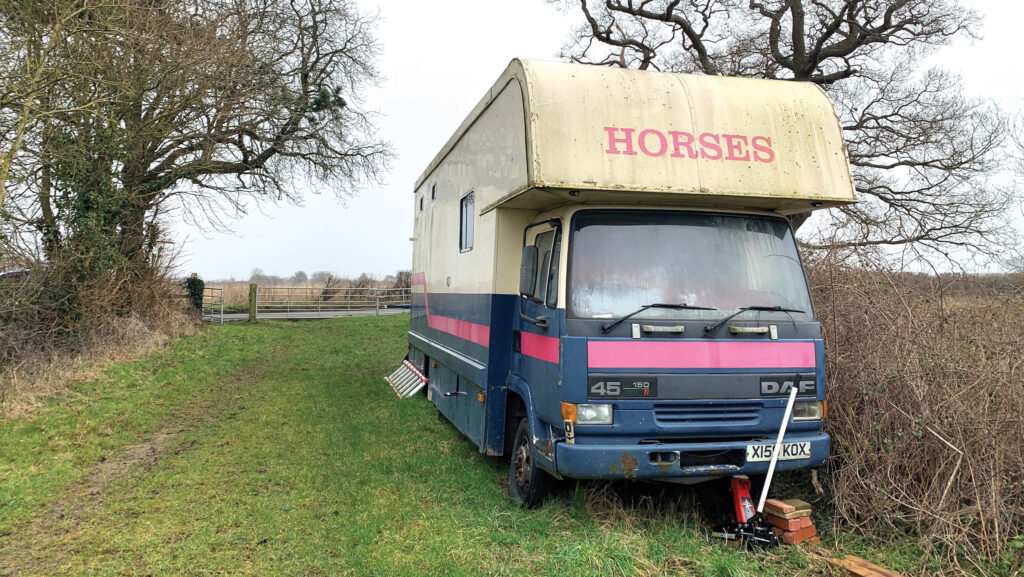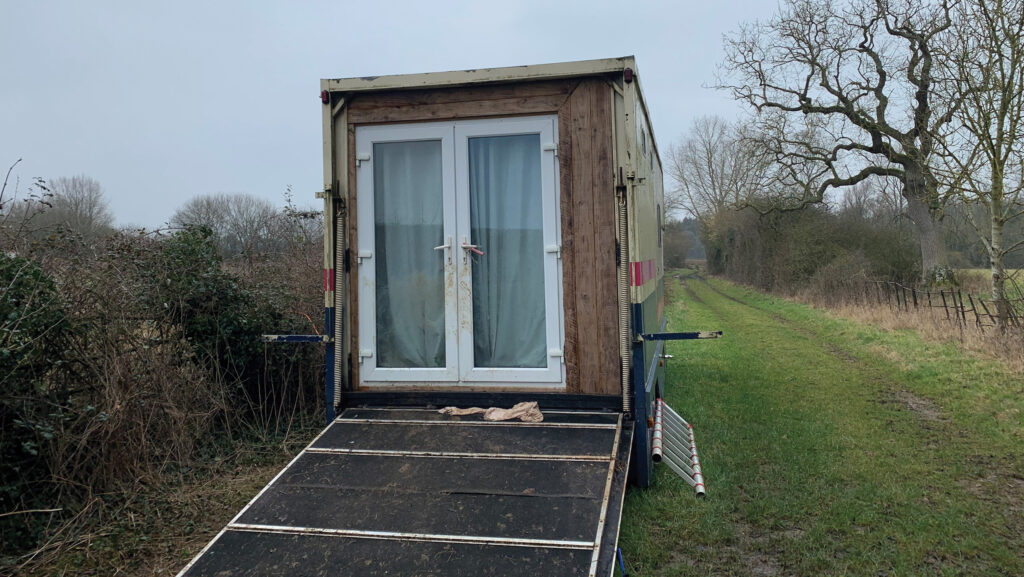Trespassers: What farmers can do to protect themselves
 © Mark Richardson/Alamy Stock Photo
© Mark Richardson/Alamy Stock Photo From errant walkers and fly-camping to longer term encroachment by travellers, the arrival of unwanted visitors can cause significant disruption to farming operations, and pose legal and financial challenges for farmers.
Different offences call for different approaches, but acting swiftly is usually the best policy.
The issue of trespassing, Andrew Gillet, chief legal adviser at the Country Land and Business Association (CLA), says, is often a seasonal one, but some areas can struggle with it throughout the year.
See also: New powers to tackle illegal encampments and hare coursing
“Those in a tourist hot spot tend to struggle with people trespassing, particularly during the summer months when visitor numbers peak, while those on the urban fringes can find their land being used for dog-walking throughout the year, even if there is no right of way or public access,” he explains.
What the law says
While some might hope that the police forces can be called upon if they find trespassers on their land or property, in the eyes of the law it is generally a civil matter, and the police are unlikely to intervene.
The most common way to remove trespassers is using common law powers, which includes reasonable force.
The CLA, however, warns that this is fraught with danger, both for committing offences yourself and the adverse media reaction if the incident is recorded.
In cases where people have possibly stumbled onto your land by mistake – a quiet word sometimes does the trick.
“If there is somebody on your land that shouldn’t be, the first thing to do would be to show them the correct route – most of the time, walkers won’t have intended to trespass,” says Sophie Reindorp, programme manager for paths at walking charity The Ramblers.
Where public rights of way run through gardens or very close to private residences, it advises walkers not to linger or intrude upon family life, and to take care not to damage plants.
For situations where people are looking to remain on your land, Jon Spinks, managing director at West Country Bailiffs, says: “The quickest way to remove trespassers is using your common law powers and serving them notice to vacate.
“You need to give them 24 hours to leave the land and, in some instances, you can give as short as one to two hours. It just depends as to whether there is damage or potential damage to land.”
Once the common law notice expires, landowners can use their common law right to remove the trespassers, using a private bailiff firm, or go down the court route.
While in a lot of cases people will move on the back of that notice, there are also cases where they don’t, and further action needs to be taken.
Landowners can go down the county court route under part 55 of the Civil Procedure Rules (CPR), which deals with possession claims, though you still need to issue a notice and then get a possession order from the court.
“Once you’ve got the possession order, this is then transferred through the High Court for private bailiffs to enforce and obtain possession,” says Mr Spinks, though he warns it can take a few weeks, with no guarantee of success.
The legal route can also be complex, time consuming and expensive, warns Mr Gillett.
“The costs of an initial letter from a solicitor, which hopefully would be sufficient, aren’t too bad. But as soon as you get to court, you may be looking at many thousands of pounds.”
How to safeguard your land
Prevention is better than cure, so the first thing to do is to secure boundaries, ensuring hedges and fences are well maintained and gates are in order.
“If you’re worried about forced trespass, having good gates and making sure they’re locked is essential – provided you’re not blocking access to a public right of way,” says the Country Land and Business Association’s Andrew Gillett.
Using good quality padlocks and reversing or capping hinges to prevent removal are also options to consider.
Mr Gillet says farmers should make sure that livestock are well contained in appropriate areas and that signage deterring trespassing or promoting positive behaviour is available and in a good position.
“Where you’ve got footpaths, bridleways and restricted byways and similar access points, it’s a good idea to make sure the routes are well signed. A lot of the time it’s unintentional trespass,” he says.
Sophie Reindorp from The Ramblers adds: “For those less familiar with rambling, welcoming signage to explain their rights and responsibilities – such as keeping dogs under close control or on leads around livestock, and leaving gates as you find them – can help walkers learn how to act responsibly in the countryside.”

© Adobe Stock
Police involvement
When dealing with unauthorised encampments, another option is contacting the police.
The Police, Crime, Sentencing and Courts Act 2022 grants police enhanced powers, including when dealing with the relatively new offence of residing on land without permission.
This offence involves residing with a vehicle on land without permission, causing significant damage, disruption, or distress.
The police can also use sections 61 and 62 of the Criminal Justice and Public Order Act 1994, to deal with unauthorised encampments on land, if certain conditions are met.
Section 61 allows police to direct trespassers to leave land if, for example, two or more people have entered land as trespassers with the common intention of residing there for any purpose, if any of them have caused damage to the land or property, or if they have six or more vehicles on the land.
Section 62 empowers police to direct the trespassers to leave the land and remove any vehicles and property if they believe there is a suitable alternative site for the trespassers to pitch.
“If you can engage the police and they’ll move them on, then that’s a much cheaper and more arm’s length method,” says Mr Gillet.
“There are so many pieces of legislations, the police officer dealing with the matter may not always know about all the relevant offences and powers at their disposal.”
Pointing them towards the Home Office guidance, he says, has proven helpful in the past.
Other types of trespassing are also covered by the criminal law, meaning the police are more likely to intervene, for example, in cases of aggravated or armed trespass.
Enforcement agencies can help
Sometimes help from enforcement agencies can speed up the process and be a safer option.
“The best time to contact us is once you’ve first noticed trespassers on your land. We can act within 24 hours and serve that common law notice to vacate on your behalf,” explains Mr Spinks.
The enforcement agency will also conduct a risk assessment and a health and safety assessment to determine how many bailiffs they need to move trespassers on, and if police assistance is needed.
It is important to act quickly and then protect your property to prevent trespassers coming back.
“Time is of the essence. The longer that the trespassers are left, the more they become embedded in living on that piece of land, and they can cause much more damage,” says Mr Spinks.
Once trespassers have been moved on, landowners are advised to ensure they properly secure the site.
Case study: Footing the bill when travellers refuse to move
Fourth-generation arable farmer Will Hinton, who farms at Stanford Hall Farm, in Southrop, Gloucestershire, has experienced firsthand how stressful and costly it can be to remove unwanted guests.
In November 2024, he discovered that trespassers had parked a horsebox on his land, next to a bridle way.

© Will Hinton
Despite approaching the couple and asking them to leave multiple times, they refused.
By mid-January, his farm agent wrote a letter on the family’s behalf, giving the trespassers notice to vacate the land by the end of the month – but to no avail.
In the end, an enforcement agency was brought in to help.
“The next best option for us was to get the help of bailiffs who took over the process,” he said.
Even with professional help it took a few days to finally move the trespassers on.
“We had some issues with getting tow trucks to move the horsebox and needed a police presence as the people were getting quite aggressive,” he says.
Final costs for Mr Hinton were £3,820 – money he will not get compensated for.
“We’ve had issues with fly-tipping before and that wasn’t pleasant or cheap either, but this was our first experience of trespassing.
“I don’t think people are properly protected by the law when it comes to trespassing. We did nothing wrong, but in the end were left to foot the bill.”

© Will Hinton
